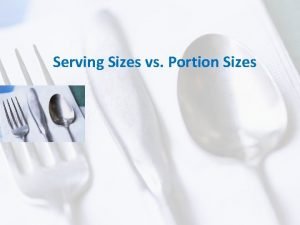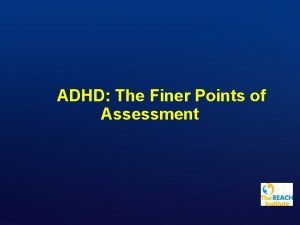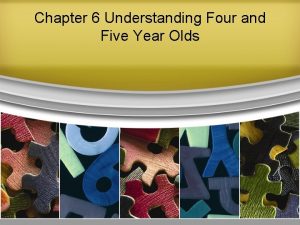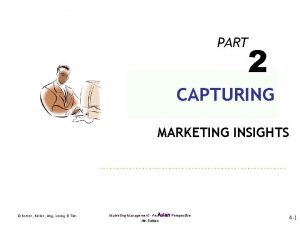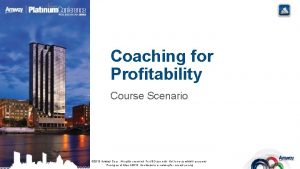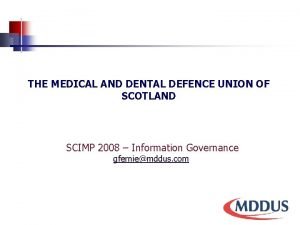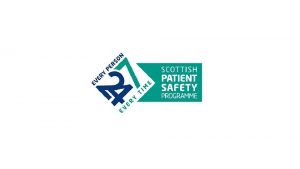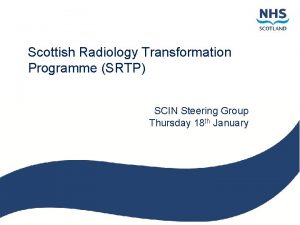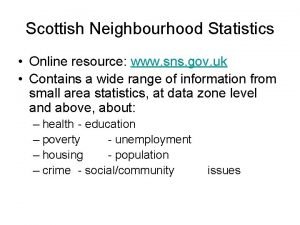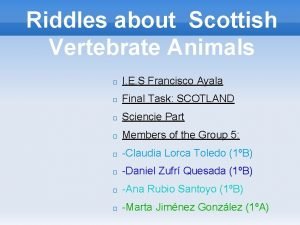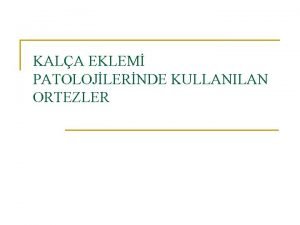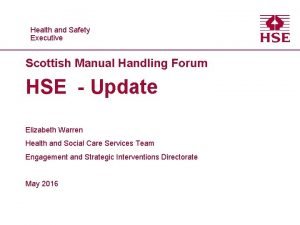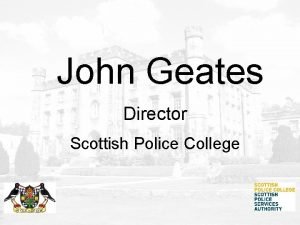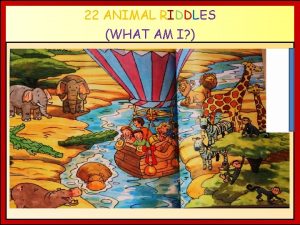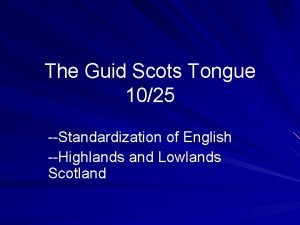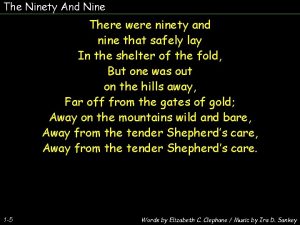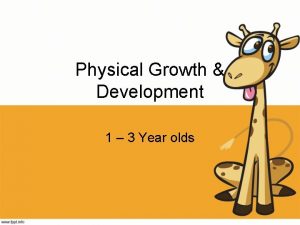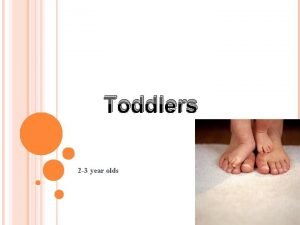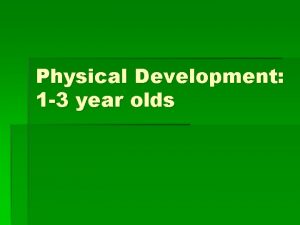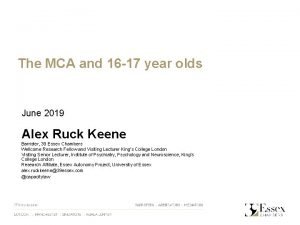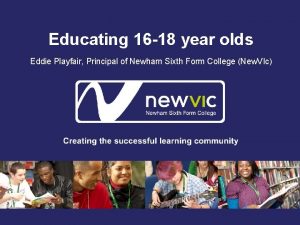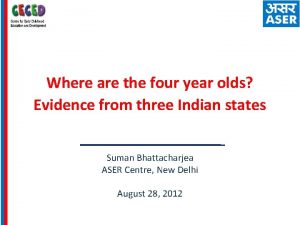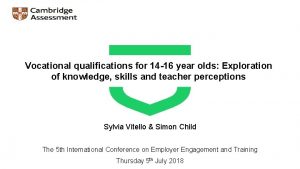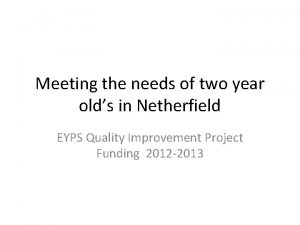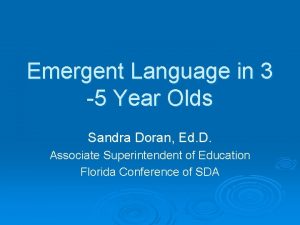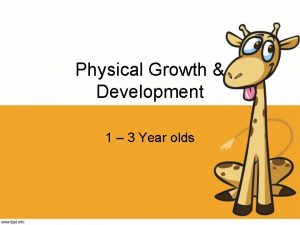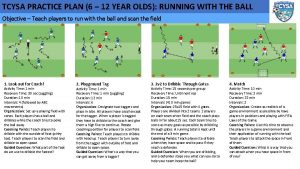Life Review in Scottish Ninety Year Olds from
































- Slides: 32

Life Review in Scottish Ninety Year Olds from the Lothian Birth Cohort 1921: Developing Qualitative Methodology in a Longitudinal Study Dr Hilary Lapsley, Alison Pattie, Professor John M. Starr, Professor Ian J. Deary

Lothian Birth Cohort 1921 • Born in 1921 • At school in Scotland in 1932 aged 11 • Scottish Mental Survey administered to all 87, 498 pupils on same day in 1932 • 550 traced in 2001 aged 79 and re-tested • Intelligence remarkably stable across lifetime with age 11 test accounting for 50% of variance • Other contributors to later intelligence included education, occupation, health, brain ageing • 90 year old testing – 2011/12



LBC 1921 as a unique cohort • Record of intelligence across lifespan. . . first and current tests nearly 80 years apart • Few longitudinal cohorts have reached age 90 • Cohort exceptionally well described over last decade, with several phases of datagathering • Possibilities for qualitative research? This paper describes early work

How might qualitative data enhance a longitudinal study? • Add colour, bring participants to life, enhance knowledge exchange aspects of study • Provide answers to specific qualitative-oriented research questions, e. g. via thematic analysis • Use content analysis to generate numerical data which can then be linked with other cohort data • Provide fresh angles and insights, leading to new hypotheses

Introducing a qualitative component to LBC 1921 • Life Review questionnaire included in current wave of testing (90 yr olds) • 9 open-ended questions covering start in life, looking back over your life and your life today • Completed by all able participants: 126 responses, 119 can be linked with Moray House test scores age 11 • Preliminary analysis of first 50 questionnaires has been completed • Focus of this paper is on methodological issues and early findings

LBC 1921 – 90 year olds (2011/12) – LBC 90 year olds • Moray House test scores at age 11 considerably higher than average – Gender • 68 women (54%), 58 men (46%) – Marital status • 78 (62%) widowed (53 women, 25 men) • 33 (26%) married (31 men, 2 women) – 3% of women are married, 78% widowed, – 53% of men are married, 43% widowed • 11 single (9 women, 2 men) • 3 divorced & 1 separated (3 women, 1 man) – Living situation • Nearly all lived in their own homes; 68% lived alone (85% women, 47% men) • Very few living with children or in nursing homes

Start in Life: Schooling • 80% said they enjoyed school and many said it brought out the best in them • Themes • Academic performance and subjects enjoyed • School atmosphere and teachers • Importance of friends at school • Leaving school early because of family finances • Personal characteristics got in the way of performance, e. g. “could have done better”


Schooling: Examples • “I enjoyed school greatly and entered into games (Rugby, Cricket) and extramural activities (Debating & Music). I think I had a good preparation for adult life. ” • “Moderately bright, usually in top third of class. Father died suddenly when I was twelve. I did not realize how affected I was by grief but woke up around fourteen with the class steeped in French & Latin & I was lost…. ” • “I left the class able to read, write & do arithmetic but I could not truthfully say it brought out the best in me. ”

Start in Life: Family Support • Mostly very warm recollections of family • Many recalled that family not well off but that parents did their best to provide for them in what were hard times • Parental absence/loss: • 5/50 mentioned death of father during childhood • 2 mentioned being brought up by grandparents • 2 mentioned being fostered or adopted

Family Support: Examples • • • “I had an extremely happy home life. My parents gave my brother and me total support and encouragement. ” “My father’s death left my mother in poor health…I had a very happy home life and despite lack of money, my mother did everything in her power to give me a good start. ” “My father [took a keen interest] in my outdoor activities such as football, tennis, golf (which I played for 80 years), fishing, bird watching and taking me as a pillion passenger on his motorbike…I might have been an only child but I was never pampered. My parents were strict and believed in ‘a smacked bottom’ when I stepped out of line. ”


Measuring Positiveness: the “Start in Life” score • “Start in Life” (Si. L) scored on 5 pt scale • mean 3. 84 • Si. L by gender • Males=3. 68; Females=4. 00 • Si. L by Moray House test scores • highest 10: mean=4. 24 • Lowest 10: mean=3. 76 • Other potential uses of Si. L score • Parental SES, personality, health….

Looking Back: When I look back over my life, what I am most proud of is. . . • My family – 52% (46%m, 58%f) • Aspects of work, career – 38% (54%m, 23%f) • Academic achievements – 16% (17%m, 15%f) • Personal qualities – 12% (8%m, 15%f)) • War service – 10% (17%m, 4%f)

Sources of pride (examples) • “My main achievement was to have been happily married for 62 years, in spite of a very early separation which lasted for 3 ½ years because of the war. I’m a widow now, but I’m proud of my family, both my girls are graduates and my grandchildren have achieved that status as well. ” • “The fact that I held down a good job in the Civil Service • “I suppose the matter of which I am most proud is succeeding in my late entry to university and in the matter of intelligence I made a little go a fairly long way. ” • “Although I had a leg amputation owing to a war wound being able to work and bring up my family as best I could. ”

Looking Back: The most difficult challenges in my life have been. . . • Bereavement (38%) – death of spouse & coping afterwards featured strongly (24%) • Other difficult family circumstances (44%) - illness of partner or child ((18%) • Work/career issues (20%) - mainly specific challenges • Personal struggles (16%) – largely connected with anxieties • Own illness or disability (12%)

Examples: most difficult challenges • “My wife’s death in 1980 at the age of 52. Six years earlier she was diagnosed with breast cancer…The years between 1974 and 1980 were sad years, but in other ways happy years. We made the most of every day. ” • “Due to his war service my husband was incapacitated from 1946 -1952…I had to keep cheerful and continue working. ” • “At 15 going into domestic service in Edinburgh, after being brought up in the country. ” • “My problem with alcohol addiction, which I have had under control for some 15 years – feel very proud of this achievement. ”

When I look back over my life, the happiest times were. . . • Marriage and family (64%) – when their family was young (30%) – getting married, enjoying life with their partner (26%) – [mainly during post-war years] • Childhood and teenage years (26%) – [pre-war] • Holidays/travel/leisure pursuits (16%) • Aspects of career/work (12%)


Examples: Happiest times • “The early years of marriage with a young family. ” • “Meeting and marrying Sadie – no doubt about that. ” • “My teenage years before the War when my boyfriend and I played tennis, went on picnics and long walks. . to dances and whist drives…We did not have a care in the world. ” • “Holidays on the Fife coast, tramping over the Pentlands and creating a permanent home where there always seemed to be endless people to feed!”




Life Today: These days, I am happiest when. . . • the family visits • spending time with friends, often in activities – e. g. , bowls, cards, clubs • getting out and about • quieter activities such as reading or watching TV (no one mentioned computers) • home-based activities, particularly gardening/being in the garden

Life Today: What I find challenging • Overwhelmingly, limitations – physical, sensory, energy, pain and memory limitations – other participants found it challenging to keep healthy, fit and active in order to avoid limitations • Limitations frustrating because – more difficult to get out and about – more difficult to do things around the house – no longer doing activities they used to enjoy

What I would tell a young person looking to the future is. . . • Be honest, hard-working, cheerful and careful with money • Get a good education • Take opportunities, gain experience, find what you enjoy, stick at your choice and do your best • Treat people with consideration • Look after your health • Pragmatic “Scottish virtues” emphasized more than self-realisation (e. g. “follow the rainbow”)

Examples • “Remember to be honest and true and work hard. Do not expect to be given hand-outs. Always be respectful of your elders and never rude to anyone. ” • “Always try to do the best you can, both at work & play. Treat other people as you would like them to treat you. Be happy and try to spread happiness around you. ” • “And don’t forget to give your Granny a hug!”

Relationality & Cognitive Complexity: Scoring Under Development • Scoring relationality – 5 pt scale, rating answers on a scale from individual to relational – could be used to examine gender, intelligence, personality etc • Cognitive complexity – could be done but time-consuming – Cf Nun Study with autobiographical data from teenage years – LBC already has IQ scores age 11

Strengths and Limitations • Life Review questionnaire successfully completed by 90 year olds • The material adds colour and thematic analysis provides interesting info about 90 year olds • Linkages, fresh angles. . . so far, these include importance of gender, cohort-specific significant life experiences (hard times, WW 2), significant life events (parental loss, widowhood) • Preliminary analysis only – yet to develop measures fully and to test for interrater reliability • Issues around narrative construction and autobiographical memory • Shrinking cohort

Acknowledgements Thanks to my colleagues at CCACE and to the Chief Scientist Office, Scottish Government Health Directorates and the University of Auckland for encouraging this work. Contact Details Dr Hilary Lapsley h. lapsley@auckland. ac. nz The work was undertaken by The University of Edinburgh Centre for Cognitive Ageing and Cognitive Epidemiology, part of the cross council Lifelong Health and Wellbeing Initiative (G 0700704/84698). Funding from the Chief Scientist Office, BBSRC, EPSRC, ESRC and MRC is gratefully acknowledged. www. ccace. ed. ac. uk
 2 oz visual
2 oz visual Adhd in 4 year olds
Adhd in 4 year olds Understanding four and five year olds
Understanding four and five year olds Free verse vs blank verse
Free verse vs blank verse Peter olds
Peter olds Forecasting and demand measurement in marketing
Forecasting and demand measurement in marketing Measuring market demand
Measuring market demand There were ninety and nine
There were ninety and nine 19 ninety one
19 ninety one Determine
Determine Leaving school poem
Leaving school poem Mid year budget review
Mid year budget review End of year review objectives
End of year review objectives Amway products catalogue 2013
Amway products catalogue 2013 Mid year budget review
Mid year budget review Traditional scottish instruments
Traditional scottish instruments Medical defence union of scotland
Medical defence union of scotland Essentials of safe care
Essentials of safe care Srtp radiology
Srtp radiology Sns.gov
Sns.gov Scottish english features
Scottish english features Scottish field three animals riddle
Scottish field three animals riddle Von rosen ortezi
Von rosen ortezi Mhra
Mhra Irish gypsy pussy
Irish gypsy pussy The final question
The final question Ma wee dug poem
Ma wee dug poem Scottish dietary goals 2020
Scottish dietary goals 2020 Scottish police college
Scottish police college Pressure groups scotland
Pressure groups scotland Pressure groups scotland
Pressure groups scotland Riddles about animals and insects
Riddles about animals and insects Scottish tongue twisters
Scottish tongue twisters
